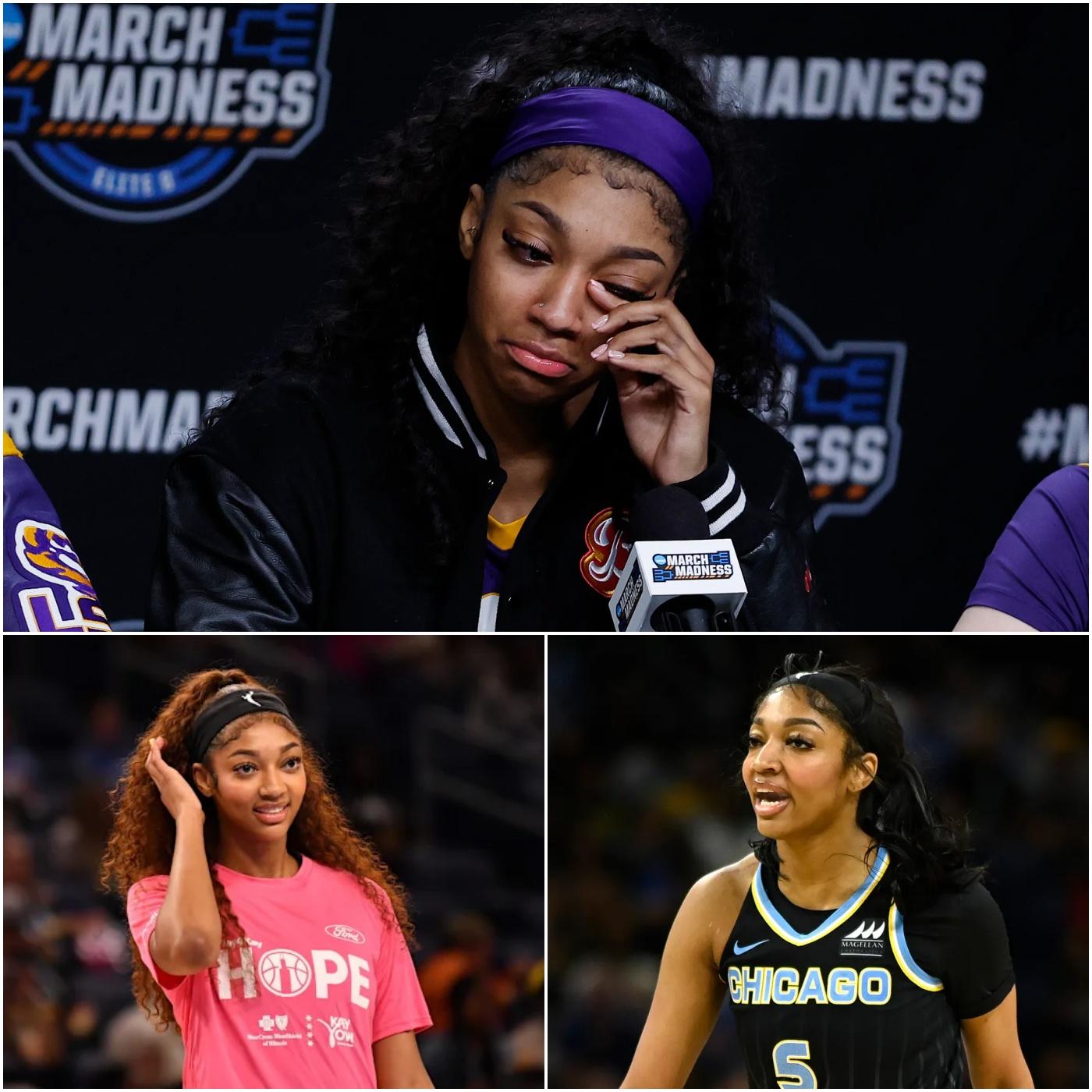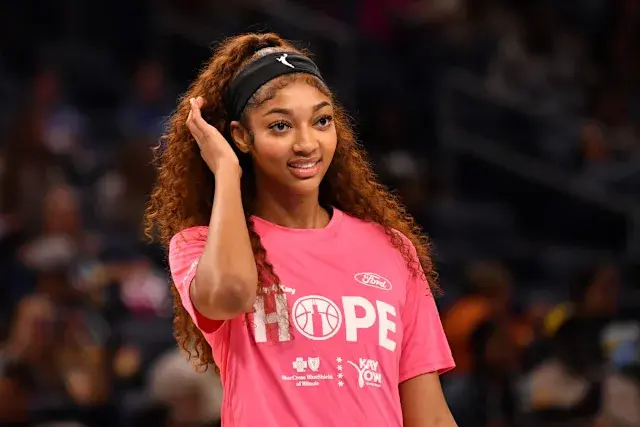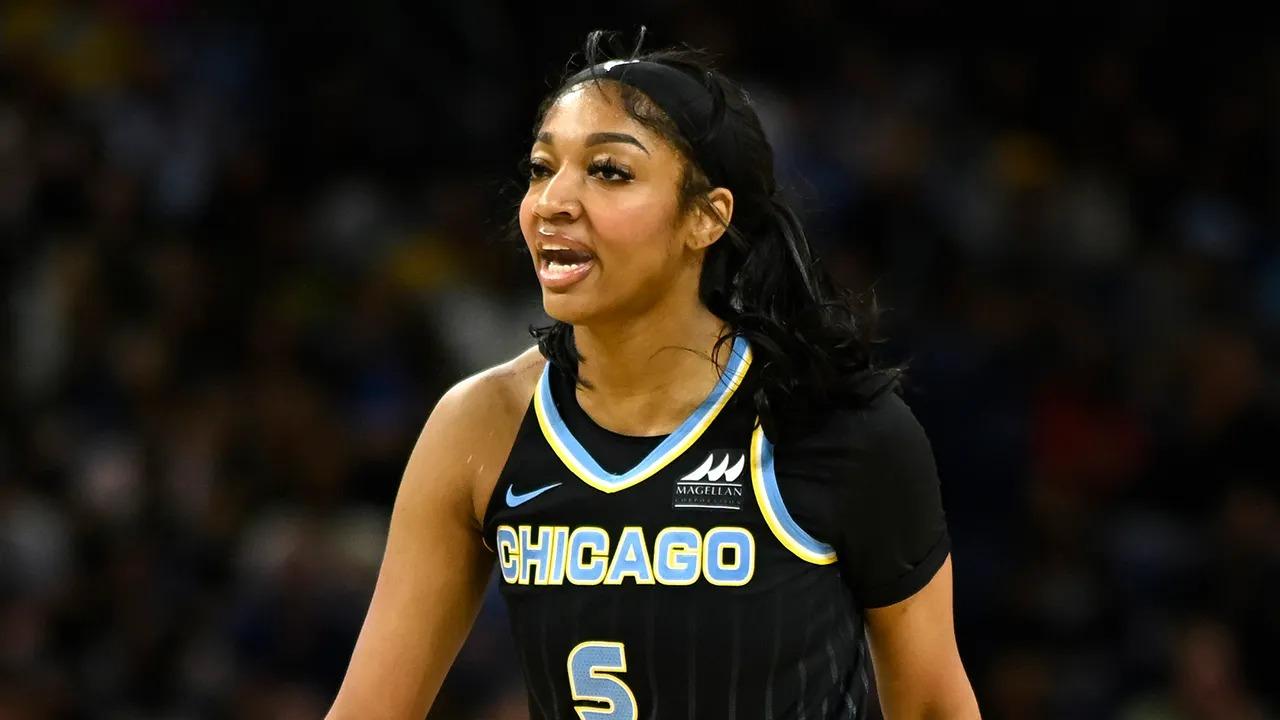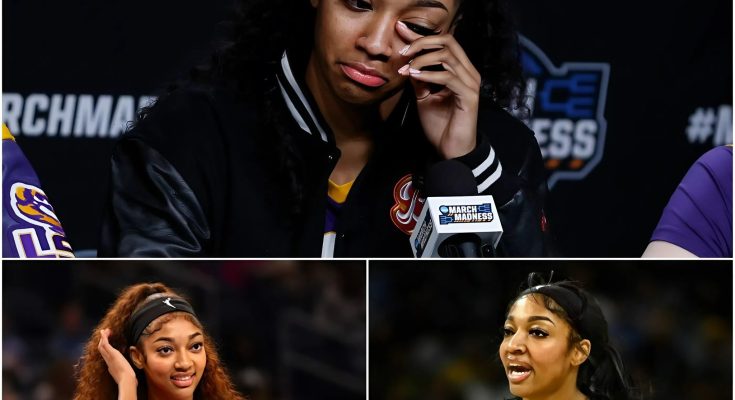In the modern landscape of professional sports, where the line between athlete and entertainer is blurred and every action is a potential headline, few figures have embodied this new reality quite like Angel Reese. From the moment she helped lead her team to a national championship, her public persona has been meticulously crafted and fiercely defended: the “Bayou Barbie,” unapologetically confident, a villain to some, and a hero to many. But behind that tough exterior, an entirely different story has been unfolding, one of relentless torment that finally bubbled to the surface in a raw, emotional moment that left the sports world stunned.

It happened in the quiet aftermath of a high-stakes loss. As the final buzzer sounded, bringing her season to an end, a camera followed Reese to the post-game press conference. She sat down, her face a mask of disappointment, but what followed was not a breakdown over a game. It was a plea, a cry from the heart for humanity in the face of what she described as unimaginable abuse. With tears welling in her eyes, Reese spoke with a vulnerability that few had ever seen, revealing the dark underbelly of her fame.
“I’ve been through so much,” she began, her voice trembling with emotion. “I’ve been attacked so many times, death threats, I’ve been sexualized, I’ve been threatened, I’ve been so many things, and I’ve stood strong every single time.” She went on to explain that this torrent of negativity had been a constant companion since her team’s championship run, a prize that came with a heavy, unseen cost. It was a confession that put a real, human face on the abstract idea of “online hate.” It forced the public to confront the horrifying reality of what it means for an athlete’s life to be reduced to a series of clicks and comments.
The emotional plea immediately ignited a firestorm of discussion. For many, it was a moment of profound empathy. Fans and fellow athletes took to social media to offer support, sharing messages of strength and admiration for her courage. They saw her not as a “villain” or a persona, but as a person who was hurting, a young woman navigating the brutal and often unforgiving world of public life. This reaction underscored the deep-seated desire among many to move past the manufactured rivalries and simply see the humanity in the athletes they follow.

But predictably, not everyone was sympathetic. A vocal contingent of critics saw her tears not as a sign of pain, but as an act of hypocrisy. They argued that she had cultivated the “villain” role, that her on-court antics—the taunts, the stares—had invited the negative attention. They claimed she couldn’t “act like a big bad wolf” and then “cry like Courage the Cowardly Dog,” a brutal takedown that was widely shared and debated. This sentiment, though harsh, highlights the uncomfortable truth about the current sports media ecosystem: we demand authenticity and personality from our athletes, but when that personality doesn’t fit a tidy, palatable narrative, we are quick to turn on them.
The root of this issue runs deeper than a single player or a single moment. It’s a conversation about the double standards that still exist in sports, particularly for female athletes, and even more so for Black female athletes. Male athletes, for generations, have been celebrated for their bravado, their trash talk, and their competitive edge. A player who flexes on an opponent or taunts them after a big play is often lauded as a “dawg” or a “competitor.” When a Black woman like Reese does the same, she is often labeled with far more negative terms, and her actions are framed as “classless” or “thuggish.” The coded language, a tool for veiled criticism, is a reality that countless journalists, analysts, and athletes have pointed out.
Reese’s plea served as a powerful testament to this reality. She spoke of being “sexualized” and receiving death threats—a level of vitriol that goes far beyond simple sports banter. It’s a chilling reminder that for many women in the public eye, online harassment is not just about their work; it’s about their personhood, their bodies, and their safety. This is a level of abuse that most male athletes will never have to contend with. The fact that a star athlete can be so celebrated and so targeted at the same time is a troubling symptom of a culture that simultaneously worships and dehumanizes its heroes.

In the end, her emotional press conference was a pivotal moment not just for her, but for the wider sports world. It was a powerful, unfiltered moment of truth that stripped away the layers of celebrity and controversy to reveal a deeply pained human being. While the internet may continue to debate her persona, the memory of her tearful plea will linger, a stark reminder that behind every viral moment and every sensational headline, there is a person enduring a level of scrutiny and abuse that the rest of us can only imagine. And in a world that thrives on outrage, perhaps that simple, human truth is the most important story of all.

